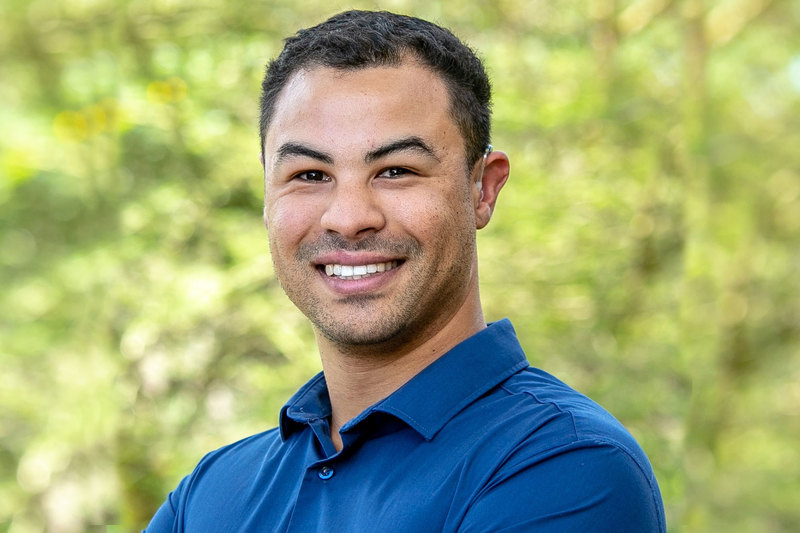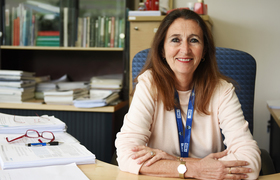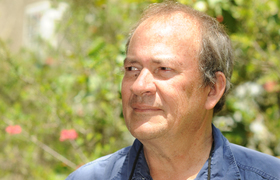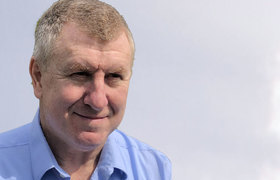Sustainable chemist wins Rising Star Africa Prize
31 August 2023 | Story Katherine Wilson. Photo Supplied. Read time 6 min.
Dr Wade Petersen, from the University of Cape Town’s (UCT) Department of Chemistry in the Faculty of Science, has been announced as the winner of the Royal Society’s Rising Star Africa Prize for 2023.
The citation for his award reads, “For his research into new methods for the construction of molecules relevant to drug discovery using visible light as a source of energy and their innovative research proposal”. The Rising Star Africa Prize is awarded to early-career research scientists based in Africa who are making innovative contributions to the physical, mathematical and engineering sciences. The medal, which will be awarded at a ceremony in London in the United Kingdom (UK), is accompanied by a grant of £14 000 and a personal gift of £1 000.
Dr Petersen was surprised when he was told that he had won the award and said that he is honoured to receive the award. “This award is significant and shines the light on the fact that African scientists are alive and thriving. [It] allows the world to see that African scientists are ambitious and motivated and shaping the world through their research and discoveries.”
Sustainable chemistry
Petersen’s research is in the field of sustainable chemistry – using photochemistry to pioneer drug development and make it more sustainable by utilising light as an energy source. This area of photocatalysis was something he became increasingly interested in while doing his postdoctoral research at the University of York, and recognised its potential to drive more sustainable chemical processes. When he returned to South Africa, Petersen started a research programme in photochemistry, a relatively new and unexplored field here at the time, and gave a topical anecdote highlighting its utility.
“We found ways to replace the ‘heat’ with low-powered LED lights, and this allowed us to still synthesise molecules when the power goes off. This is the potential of photochemistry.”
“Typically, chemists activate molecules for synthesis with heat – which was at times challenging in South Africa because of not having electricity to keep the heating equipment running due to loadshedding. To counter this, we found ways to replace the ‘heat’ with low-powered LED lights, and this allowed us to still synthesise molecules when the power goes off. This is the potential of photochemistry.”
Their ultimate goal, he said, is to have the reactions take place outside using ambient sunlight. He and his team are working to perfect conditions for this. He is specifically interested in utilising photocatalysis as a means to develop new potential drugs and is particularly focused on applications toward antimicrobial resistance. In a recent paper published in Angewandte, they reveal how they use light to make beta-lactams – a key scaffolds of penicillin antibiotics – and are now exploring opportunities to discover new therapeutics.
Developing African scientists
One of the things that brings Petersen the most fulfilment is interacting with students, which he finds enjoyable, exciting and stimulating. “Students have ideas, I have ideas and I learn so much from the students, learning things I didn’t necessarily know, as we journey together. Often the student ideas seem crazy, and I think that they probably won’t work, but the students often keep working on them on the side and surprise us all. I really enjoy learning new things, and mostly to be proven wrong,” he said.
Petersen has supervised and worked with some stellar PhD and master’s students in his field, and they are all currently continuing their research in prestigious institutions across the globe.
His passion is to make sure UCT develops great African scientists and that they stay in touch with cutting-edge research taking place across the globe. He sends his students to collaborate on research with colleagues in the UK, giving them exposure to what is happening in other research spaces. When asked about some of the highlights of his work, Petersen related a story of how a student who had done an honours degree in Zimbabwe showed up at his door one day and said, “I want to do science – I want to do a master’s”. This student didn’t have funding, Petersen noted, but through a Royal Society FLAIR (Future Leaders – African Independent Researchers) Fellowship, which he received, Petersen was able to provide an opportunity for this student who has just graduated with his PhD. Petersen said that he really admired this student’s courage to follow his passion, despite many obstacles along the way. He emphasised what a big role support plays in furthering students’ careers, especially those who don’t always have access to opportunities. To date, he has trained eight African scientists, who are all doing amazing work in their fields.
Beyond science – moving forward
Petersen and his team are expanding their work on antibiotic resistance and will continue working on photochemistry, but he said that he is becoming more and more intrigued with larger molecules as well as the growing developments in electrochemistry. Future explorations include how photochemistry can be applied to complex protein systems as well as how electrochemistry can be used to compliment his endeavours towards developing sustainable chemistry technologies. He is passionate about bringing these internationally utilised techniques to South Africa and Africa to ensure that the country and continent stay on the cutting edge and do not lag behind.
 This work is licensed under a Creative Commons Attribution-NoDerivatives 4.0 International License.
This work is licensed under a Creative Commons Attribution-NoDerivatives 4.0 International License.
Please view the republishing articles page for more information.










